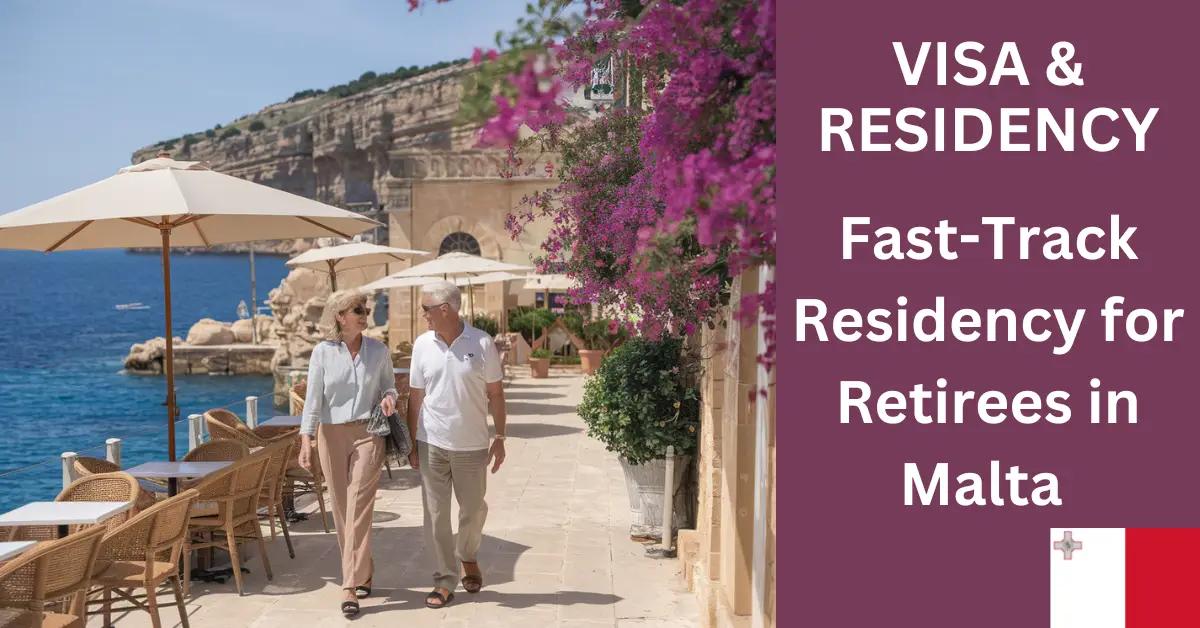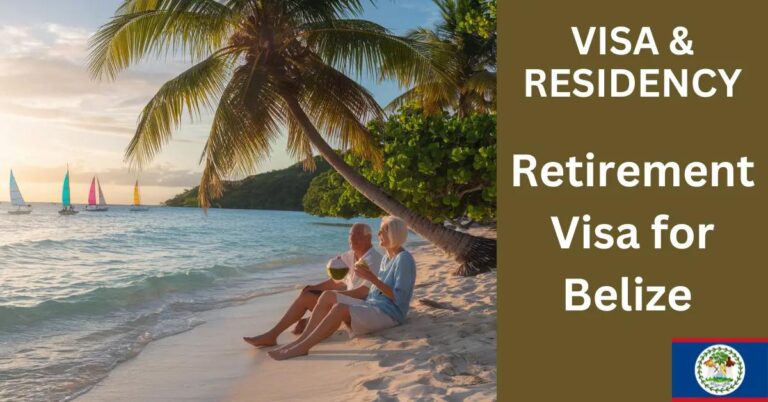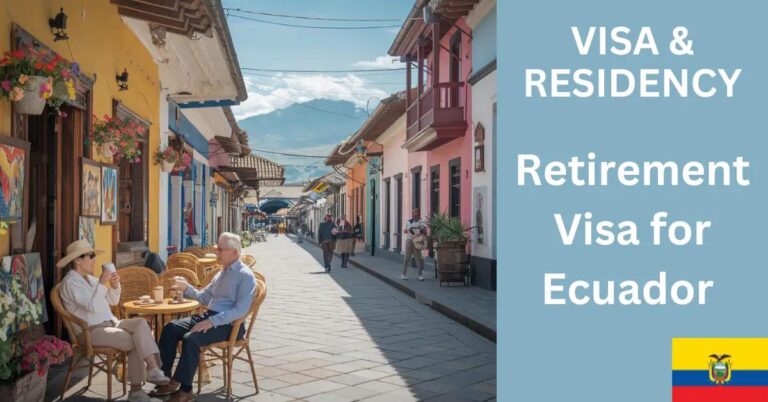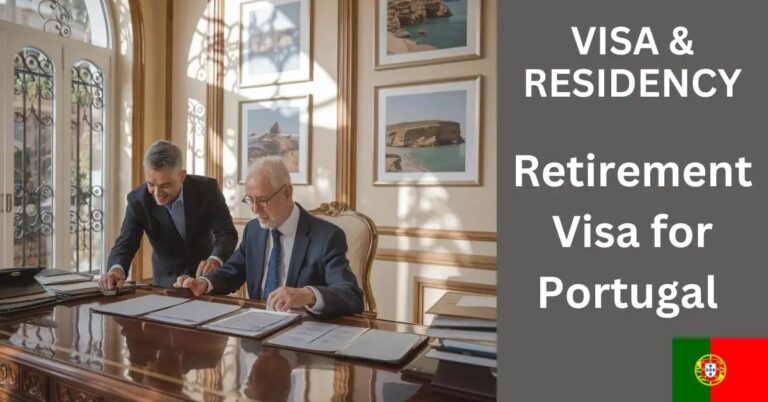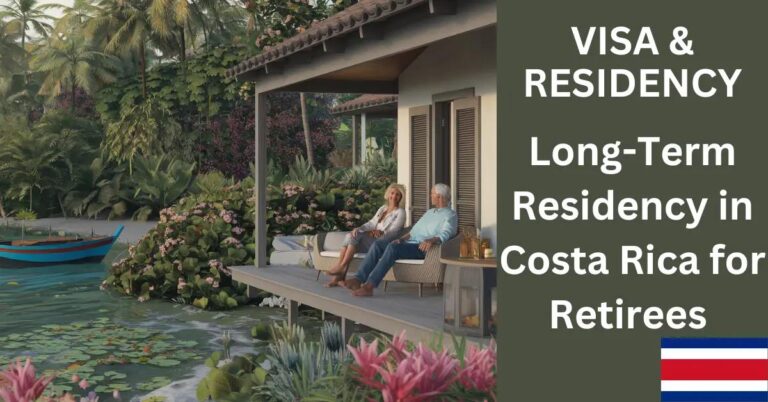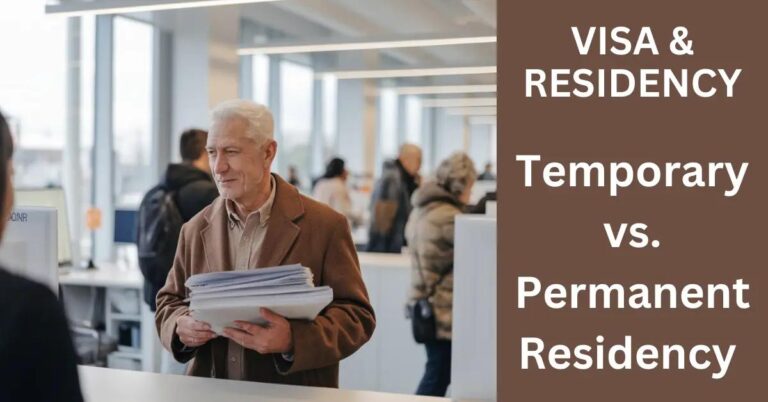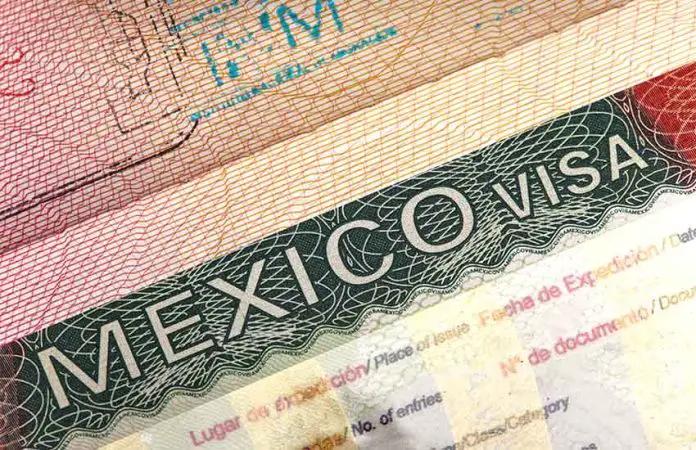TL;DR:
- Eligibility: Retirees aged 55+ can fast-track Maltese residency; must have stable finances and health insurance.
- Documentation: Requires valid passport, birth certificate, proof of address, and police certificate.
- Residency Types: Options for temporary (renewable) and permanent residency; involves application process and interview.
- Retirement Benefits: High-quality healthcare, tax benefits, active community, good weather, and low crime.
- Residency Programs: Malta Retirement Programme for European retirees; Global Residence Programme for non-Europeans; long-term residence permits available.
- Costs: Basic living €1,500-€2,000/month; housing from €700 rent; utilities €100-€150; favorable tax rates.
- Steps to Move: Compile checklist, connect with expat communities, arrange housing, legal documents, and banking. Adapt to local culture.
- Real Estate: Options to rent or buy; popular areas include Sliema and Gozo; legal advice recommended.
Thinking about retiring in Malta? The idea of a Mediterranean life might be closer than you think. Imagine sipping your morning coffee with a view of the azure sea. Malta offers a fast-track residency process for retirees that’s simpler than you'd expect. This guide breaks down all you need to know about the eligibility criteria, age limits, income requirements, and more. Get ready to explore the sunny, welcoming shores of Malta with ease and confidence!
What are the eligibility criteria for a fast-track Maltese residency for retirees?
Eligibility: To fast-track residency in Malta, retirees must meet specific criteria. Candidates must be at least 55 years old. This age restriction helps ensure applicants are genuine retirees ready to settle.
Documentation: Key documents are necessary for your application. You need a valid passport, birth certificate, proof of address, and police conduct certificate. All these documents prove who you are and verify your personal history.
Financial Status: You must show stable finances. Retirees need a regular pension or adequate savings. This requirement serves to ensure applicants can sustain themselves without local aid.
Health Insurance: Health coverage is essential before moving to Malta. You must have a valid health insurance plan. It guarantees that medical costs are covered while living abroad.
Residency Types: Malta offers both temporary and permanent residencies. With temporary residency, you live in Malta for one year, renewable annually. Permanent residency allows indefinite stay once specific criteria are met.
Application Steps: The fast-track process involves clear stages. First, gather required documents, and confirm that you meet criteria. Next, submit the application to Maltese authorities. After submission, the authorities review it. If approved, have an in-person interview. At this interview, officials validate your information and ensure authenticity.
The Malta Retirement Programme 2024 sets a framework for these requirements. This program helps retirees access Maltese residency more efficiently. The criteria make residency accessible yet maintain Malta's economic stability.
Overall, securing fast-track residency involves meeting requirements and completing key steps. Each point ensures retirees can enjoy their golden years in Malta comfortably and legally. Understanding these criteria is the first crucial step in the journey to living in Malta.
How Can Retirees Benefit From Living in Malta?
Imagine waking up to Malta’s blue seas and warm sun. Let's explore the benefits of living here as a retiree.
Many ask: Can US citizens retire to Malta? Yes, they can! Malta welcomes retirees from all over. But why choose Malta for your golden years?
One huge benefit is its healthcare. Malta offers high-quality care, with several modern hospitals and clinics. You'll find lots of skilled doctors here. Healthcare services are often praised, and many English-speaking providers are available.
Malta offers tax benefits for retirees. It offers hassle-free tax deals and less tax on pensions. The Malta Retirement Programme has favorable conditions if you qualify. You’ll enjoy less stress about your finances in Malta.
Furthermore, Malta's community life is active and welcoming. You can join many social clubs and gatherings. People often make new, lasting friends here. It can be easy to fit in and enjoy the local lifestyle, which helps you settle fast.
The weather is another perk. Do you love sunny days? Malta enjoys over 300 sunny days a year, adding to its allure. The mild climate ensures a pleasant experience year-round. Enjoying life outdoors in this lovely environment is easy.
Malta is also quite safe. The crime rate is low, adding peace of mind. You’ll often feel secure while walking around both day and night. This sense of safety enhances the quality of life.
Lastly, Malta is rich in culture. Visit historical sites and enjoy festivals. From ancient ruins to lively carnivals, there is always something fun to explore.
Living in Malta as a retiree can be rewarding due to its healthcare, social life, tax incentives, climate, security, and culture. It's a place where many find joy and leisure in retirement.
Which residency programs are available for retiring in Malta?
Are you thinking about retiring in Malta? I can help you understand the options. Malta has a few residency programs made just for retirees. Let's explore them.
The Malta Retirement Programme 2024 is a top choice. You might wonder how to get temporary residency in Malta. This program helps retirees from Europe get special status. It allows you to live in Malta when you meet some rules. You need to own or rent a home, get health insurance, and pay a yearly tax. How long does it take to get a residence card in Malta? For The Malta Retirement Programme, you can expect around three months.
Then, there's the Global Residence Programme. It's handy for retirees from outside Europe. This program demands renting or buying property, financial stability, and a minimum annual tax. This setup gives you benefits, but also has limits. For instance, it doesn’t lead to permanent residency.
For other longer stays, consider long-term residence permits. To get one, you need to stay in Malta for five years. Over that time, your address should remain the same. If you meet these demands, you can apply for a long-term permit.
Now, let’s talk about timelines. The application process can be slow. For a regular residence card, it often takes up to three months. Patience is key.
Each residency scheme helps in its ways. Advantages might include tax breaks or easy living. But be mindful; they have limits too. For instance, some schemes don’t let you work in Malta.
Explore all options before picking a program. Review every detail, and remember that each choice has its perks and downsides. This knowledge will make your move easier and smoother.
For more detailed guides, you can visit this site.
What is the true cost of retiring in Malta?
Planning your retirement in Malta is a financial adventure. You must know the costs. First, let's break down a monthly budget. For a modest lifestyle, you may need about €1,500-€2,000. This covers basic living costs like rent, food, and transportation. You can spend more on luxury, but this is the base cost.
Housing can be pricey in Malta. Rents start at about €700 per month for a small flat. Buying a home involves more cash. Prices vary, but the average is around €2,100 per square meter. Consider if you want to rent or buy before deciding.
Utilities like water, electricity, and internet cost around €100-€150 per month. It depends on your usage, but it’s good to budget this amount. Malta is small, so the transport cost is low. A bus pass might set you back €26 monthly.
Retirement costs in Malta compare well to other places. For example, Portugal is another popular choice for retirees. Portugal may be cheaper overall, but Malta offers unique charms. Consider what's important to you when comparing.
Tax is another vital topic. Income tax in Malta is based on where you live. Retirees might pay less tax if they plan well. Look into Malta's pension distribution options, which might work in your favor.
Healthcare is another essential cost. Malta provides good healthcare at public hospitals. If you choose private healthcare, it may cost more, but offers faster services. This choice can impact your yearly budget significantly.
Deciding to retire in Malta involves understanding these costs. Compare with other places you like. Think about your lifestyle needs, and how much you have to spend.
What Steps Should Be Taken to Successfully Move to Malta After Retirement?
When planning your move to Malta after retirement, organize your steps early. First, compile a moving checklist. Include tasks like paperwork, housing, and healthcare options. Create a plan several months before your move. Precise planning reduces stress when retiring in Malta.
Finding the right expat community in Malta makes settling easier. Look for groups online and join forums to connect with others. These communities offer helpful advice on living in Malta. They can answer questions about daily life and cultural norms.
Legal documentation is crucial for a smooth relocation. Begin with understanding residency requirements and bureaucratic procedures. Research necessary permits and gather essential documents. This includes proofs, such as income statements and health insurance coverage.
Setting up utilities in Malta is a priority upon arrival. Arrange for water, electricity, and internet services in advance. Consider getting a local SIM card to stay connected with family and friends. A local number also helps when interacting with Maltese businesses.
Banking services are another key step to arrange before moving. Open a bank account with a Maltese bank. They offer services tailored for retirees. This will aid in financial planning and managing your pension income.
The transition phase involves adapting to the Maltese culture. Start by engaging with locals. Take part in local activities and community events. Understanding cultural norms helps in easing the adjustment. Patience and openness to new experiences will aid this phase.
The move is more than physical; it is about opening a new chapter in life. Embrace the change and the unique lifestyle Malta offers. These steps will help you prepare and enjoy your golden years in this beautiful island country.
How Can Retirees Immerse Themselves in the Maltese Culture and Lifestyle?
Living in Malta offers many ways to enjoy and learn about the local life. Let's explore how you can dive into the rich Maltese culture. If you love food, you're in the right spot! Malta's cuisine is a mix of flavors from different Mediterranean traditions. Try rabbit stew, pastizzi, and fresh fish. These dishes tell a story of Malta’s history. Visit local markets to get fresh and tasty treats. Join food festivals to see these dishes in action.
Festivals and events are a big part of life here. Each town in Malta has its own feast or festa with fireworks, music, and parades. Don’t miss the famous Carnival in February, which is full of color and fun. Valletta, the capital, is the place to be for cultural events. The city hosts the Notte Bianca, a night-long arts celebration, offering a taste of local art and performances.
Do you want to learn the language? Maltese is a unique mix of Italian, English, and Arabic sounds. Language courses for retirees are available, making it easier to pick up the basics and connect with locals. Many Maltese people speak English, so you won’t feel lost.
Want to give back to your new home? Volunteer work offers a great chance to help local communities. Engage with groups working in historical sites, nature, or community centers. You’ll meet new people and learn more about Malta's life this way.
Dive into Malta’s rich history and arts. Explore the ancient temples like Ħaġar Qim, which are older than the pyramids. Discover Valletta’s historic buildings and museums. Every corner tells a story, with art that reflects Malta's diverse influences.
What Retirement Real Estate Options are Available in Malta?
Malta's real estate options are diverse and welcoming for retirees. You might wonder about owning a home or renting. This island nation offers both choices in vibrant or serene areas, appealing to those who seek lively communities or peace.
What's the Property Market Like in Malta?
Malta's property market is stable, with diverse options. Choices range from historic homes to modern apartments. Each region in Malta offers unique charm and community styles for retirees.
Steps to Purchase Property
Buying property in Malta is straightforward. First, find a local estate agent who knows the market well. They help in finding the right home. Once you find it, negotiations begin. Make sure to hire a notary. They handle legal checks and draft contracts. Finally, sign the agreement and transfer ownership. Costs include a 5% stamp duty and other fees.
Renting vs. Buying: Pros and Cons
Renting might suit those unsure about settling permanently. It provides flexibility and lower initial costs. Maintenance is usually done by the landlord. Buying, on the other hand, is a long-term investment and offers stability. However, it requires a significant upfront payment and ongoing maintenance costs.
Popular Areas for Retirees
Sliema, one of the most popular areas, offers modern living with seaside views. St. Julian's is vibrant, perfect for those wanting bustling nightlife. For peaceful living, consider Gozo or the historic city of Mdina. These offer a slower pace and rich history.
Legal Considerations
Legal advice is crucial in Malta's property market. Understanding local laws prevents future problems. Consult with a lawyer experienced in Malta's real estate. They can guide you through the purchasing or rental process.
Renovations and Upgrades
Found a charming old home needing work? Renovations are common and add personal touches. Ensure you understand local renovation rules. Hiring a local contractor helps navigate these regulations efficiently.
Conclusion
Living in Malta offers retirees a wealth of benefits and opportunities. We've discussed the eligibility for fast-track residency, detailed necessary documents, and explained income requirements. From there, we explored Malta's retirement perks like tax benefits and healthcare. Different residency programs each have their pros and cons. With property options, living costs, and cultural richness, Malta is a top retirement choice. Planning and preparing well will ensure a smooth transition. Remember, embracing Malta's lifestyle guarantees a rewarding retirement journey filled with adventure and community.

